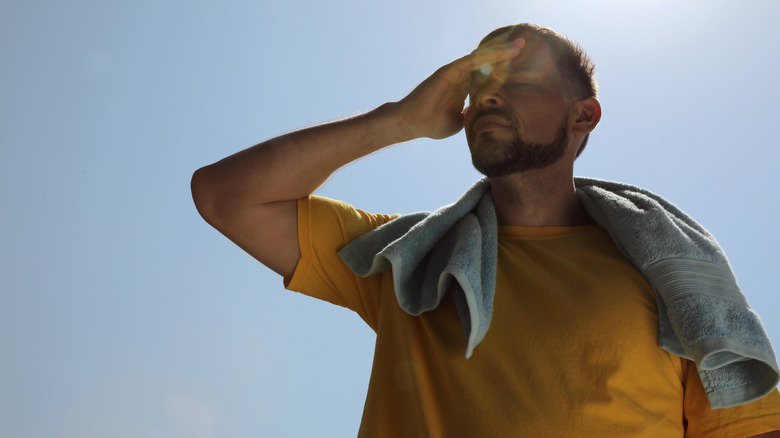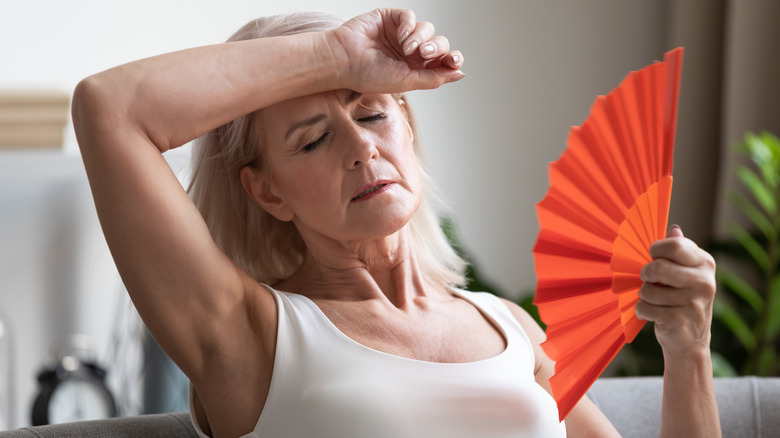When Do You Need To Go To The Hospital For Heat Exhaustion?
Heat exhaustion is a condition that occurs when your body overheats and can't cool itself down, according to Healthline. Heat exhaustion can happen to anyone, but is more common among athletes, older adults, and young children. Your body can overheat if you exercise outdoors in high temperatures or sit in a hot car or a room with no air conditioning for too long. While heat exhaustion is less serious than heatstroke, it can still be quite dangerous and can even lead to heatstroke in some cases.
That's why it's important to stay alert and watch out for signs and symptoms of heat exhaustion. As it turns out, these symptoms can either appear gradually or happen all at once. Some common signs of heat exhaustion include dizziness, nausea, feeling faint, sweating profusely, headache, muscle cramps, moist and cool skin, weak pulse, and sudden drop in blood pressure. Keep in mind, dehydration can also take place.
Go to the hospital if your symptoms don't improve
When it comes to treating heat exhaustion, time is of the essence. If you're experiencing any signs or symptoms of heat exhaustion, you should immediately take cover in the shade or find a cool place to sit down indoors, according to the Cleveland Clinic. You should also drink plenty of water and fluids and give your body time to rest and recover. If your symptoms don't improve within an hour, seek emergency medical care.
You should also go to the hospital if you can't keep any fluids down, have trouble standing or speaking, start sweating heavily, develop a fever of more than 103 degrees, or start to lose consciousness. If left untreated, heat exhaustion can lead to severe health complications, like heatstroke, or even death. That's why it is critical that you listen to your body and seek help if your symptoms don't go away or start to worsen.


